Fast ferries and fast food but Holyhead waits on Brexit
- Published
Ian Davies, route manager at Stena Line, explains how the industry had changed in 25 years
Sandwiches made in England travel through Wales to Holyhead, board the night-time ferry and are on shelves in Galway by 8am.
Customers want fresh food, faster. Time is money in retail and ports play a vital role.
With cut-throat competition on the high street, if the sandwiches aren't on the shelves in Ireland by the time the stores open, the haulier risks losing future business and that pressure passes back onto the ferry companies.
But it is not only your day-to-day groceries. I watched racehorses, sheep trailers, glass balconies and French cheese loaded on to a ferry bound for Dublin.
There have been no border customs at Holyhead since the European Union's single market came into being 25 years ago.
Then 54,000 lorries a year crossed from Anglesey to Ireland.
As the single market developed so Holyhead's port became busier and ever more efficient.
Now 423,000 lorries cross every year - nearly eight times the number back in 1992.
But what happens after Brexit is what everyone involved in this business is asking, and what it might mean for Holyhead.
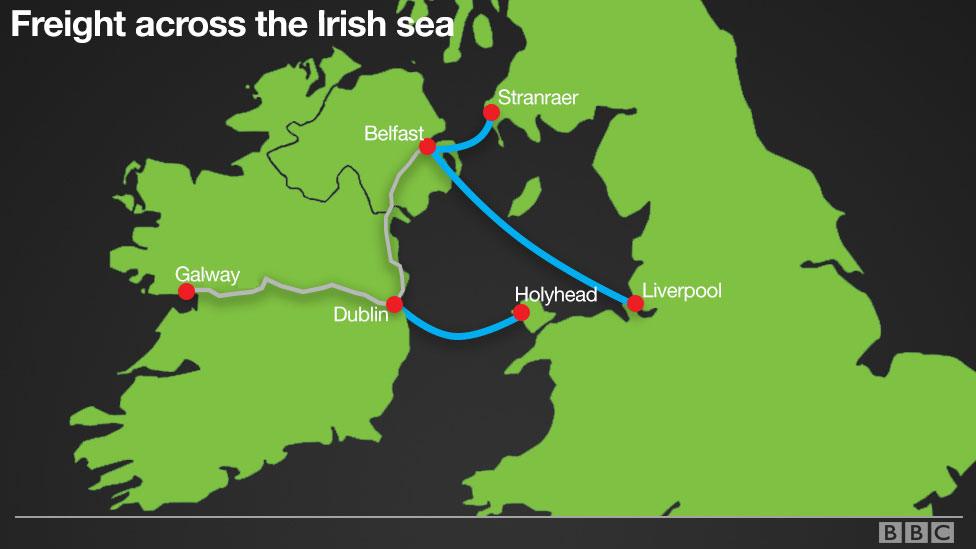
The port has been a link between Wales and Ireland for nearly 200 years, and now carries two thirds of Irish Sea ferry traffic.
A £42m investment in the mid-1990s, alongside the EU single market, has helped make Holyhead the second-busiest roll-on roll-off UK ferry terminal after Dover.
Allied to that, a complex network of other suppliers has developed in north Wales, not just moving goods, but assembling some too.
In recent years, the speed of the ships - the fastest journey is three and a quarter hours - has also made it an important link for the supermarket giants.
The big chains have been able to supply their Irish stores from depots in north west England and the Midlands, all timed to the flow of fast ferries to Dublin.
What the ferry and port operators want is for no extra burden after Brexit, whether in border or custom controls.
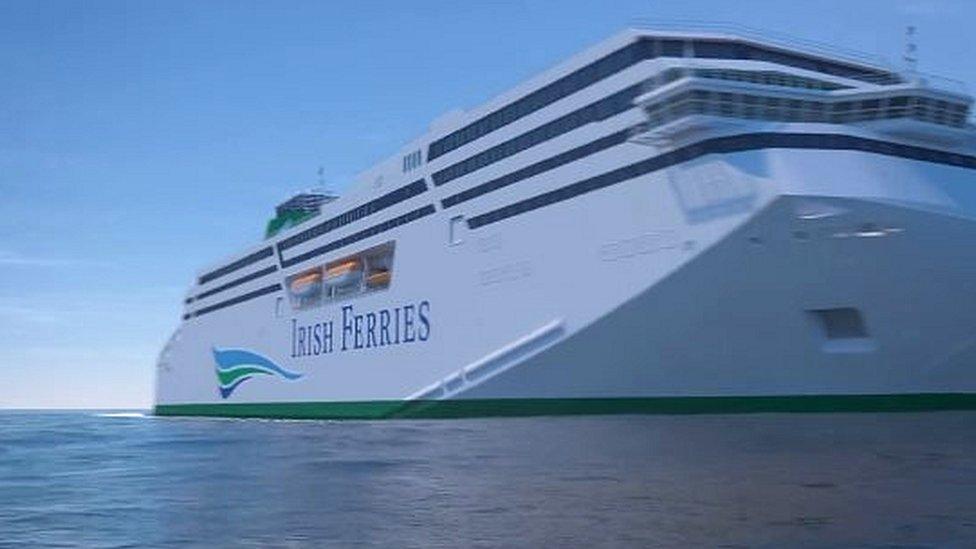
A new Irish Ferries ship, WB Yeats, will be in service in the summer of 2018
Ian Davies, route manager at Stena Line, said they were looking for "certainty" and solutions with Brexit, ideally borderless ones.
"Since we last had borders 25 years ago, we're dealing with a 700% increase in the number of lorries. To deal with those huge volumes [with controls], it's hard to imagine how we'd cope; we'd adapt but that's the scale of it.
"We're hoping there will be an e-solution for these borders because the flow of traffic through this port is 24/7. For example, last night 400 lorries came off two ferries in 25 minutes and were on to the A55 and onto the UK network."
Irish Ferries operates four ships and has a new £128m ferry on order, with room for up to 165 lorries and 1,885 passengers. It believes there is a bright future but has called for a "level playing field".
It warned a cross-party assembly committee of a potential "significant displacement of traffic" from Holyhead to ports in northern England and Scotland if Brexit brings stringent customs checks at Welsh ports, while there are more relaxed arrangements on the land border between the Republic and Northern Ireland.
Like the port, local haulage firm Gwynedd Shipping has grown rapidly because of trade across the single market. In the last six years, it has expanded from 25 to 100 trucks, half of which cross to Ireland.
Howard Owen, transport manager, said it was vital a technological solution was found to ensure vehicles and ferries were not delayed after Brexit.
"A lot of our work is loading in Ireland yesterday and delivering today; that's time critical," he said. "We want to get Brexit done as soon as we can, get the processes in place and make it as easy as possible to cross the border."
Lorries travelling, for instance, to Switzerland have to supply considerable paperwork about their cargo at customs because Switzerland is not in the EU. Hauliers here argue if that happened between Wales and Ireland it would damage trade.
Mr Owen said there was also a shortage of lorry drivers. The void had been filled by EU drivers over the last five years but he wanted that to continue.
Cardiff Business School has pointed to the "time-sensitive deliveries" through Holyhead, which could lose its advantage to Liverpool if lorries are held up. But it also says those in the supply chain should be capable of working out security and dispatch issues before they arrive at ports to ease border delays.
Meanwhile, in Pembrokeshire, a council cabinet report on Monday warns a "hard" Brexit could have an economic impact , externalon trade worse than 1996's Sea Empress oil spill., external
It includes discussion of the potential impact on ports at Pembroke Dock and Fishguard.
The assembly committee looking at Brexit has already expressed its disappointment that the Welsh Government has not been working closely with Irish counterparts on cross-border trade issues.
The Welsh Government insisted engagement at ministerial and official level was continuing and it would continue to work closely with partners, such as the Irish Government to assess the implications of Brexit and "explore mutual challenges and opportunities".
In its response , external it said it was its priority is to ensure Welsh ports and the Welsh economy "were not disadvantaged as a result of any decisions taken by the UK government".
- Published19 September 2017
- Published4 August 2017
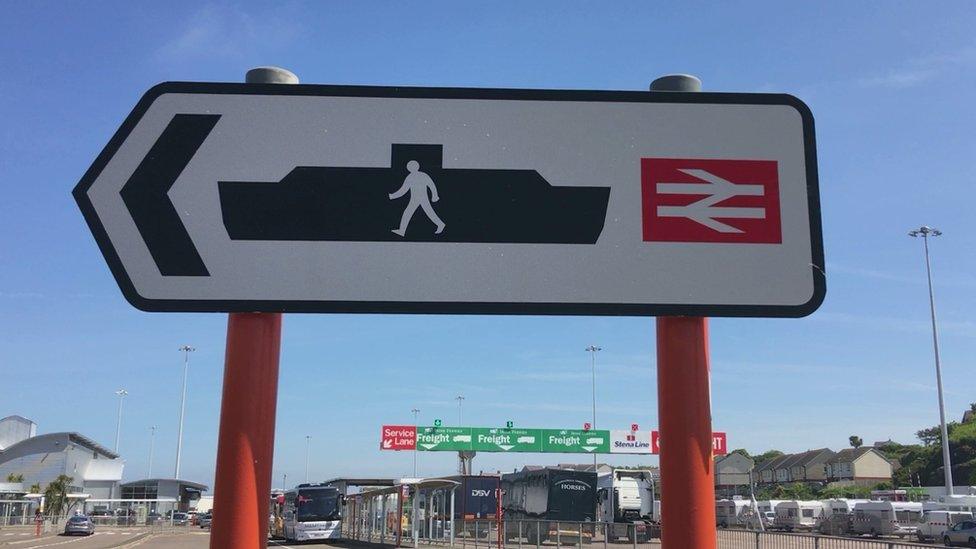
- Published26 May 2016
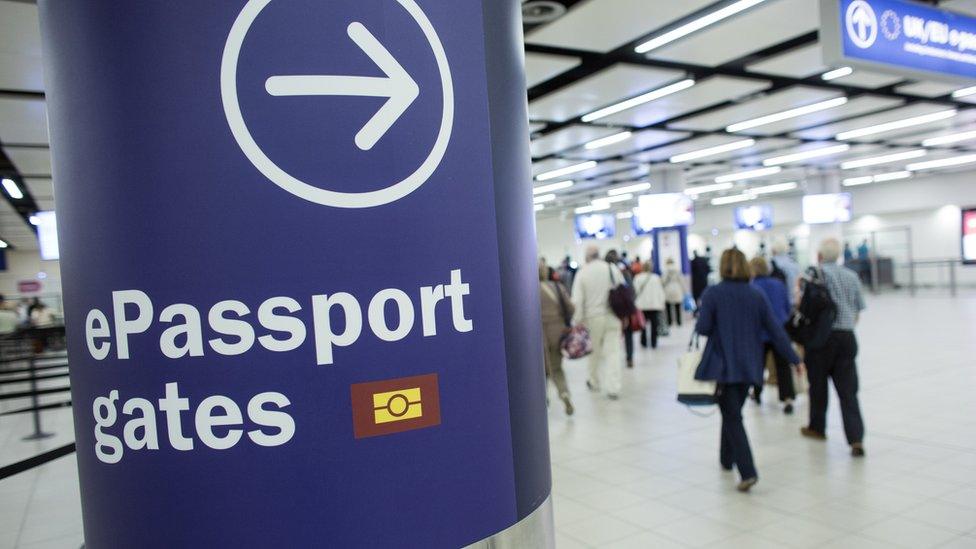
- Published19 May 2017
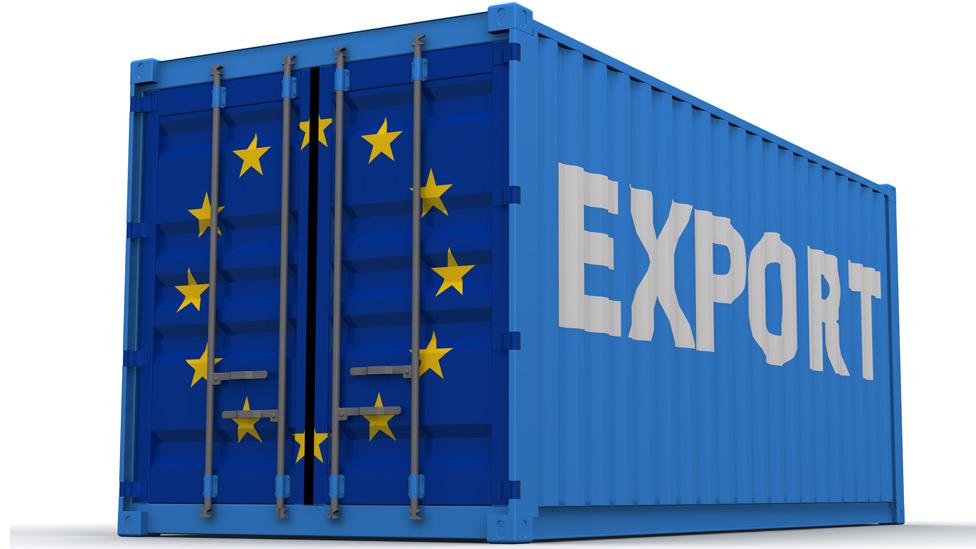
- Published13 February 2017

- Published30 December 2020

- Published3 February 2017
